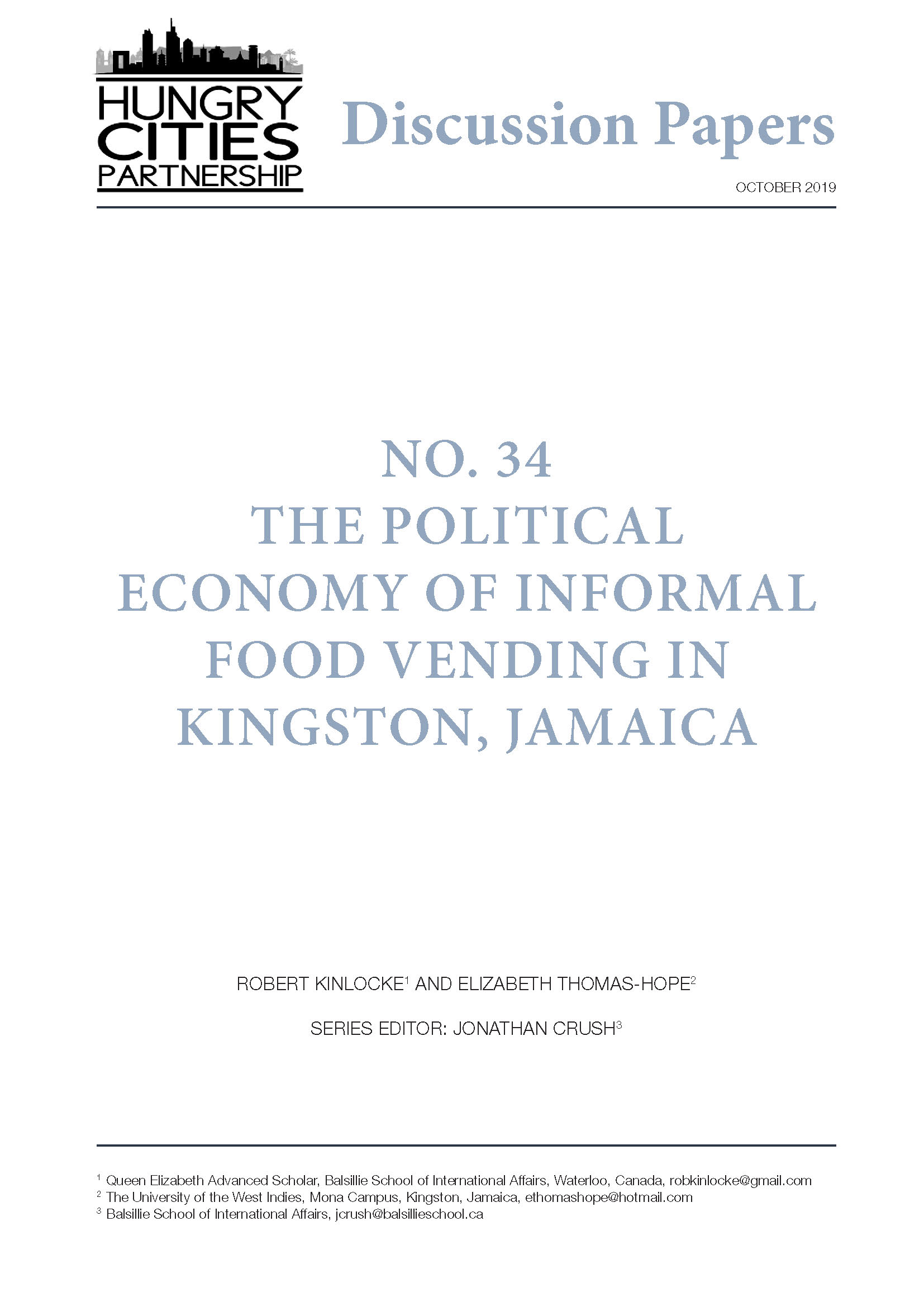Small-scale food enterprises occupy a critical space in the food system of Kingston, Jamaica. While small-scale food retailers serve the entire population, they are disproportionately relied on by poor urban households. The nodes and networks of retailers play an important role in the value and commodity chain by providing access to comparatively cheap food but are often affected by economic vagaries and state-level regulation, among other factors that potentially challenge the sustainability of trade. These issues are potentially offset by a highly dynamic system where entry into the trade is maintained by the high levels of unemployment and limited alternatives. While the challenges are probably the result of state-level deficiencies, it is possible that these problems are both alleviated and exacerbated by the various strategies used to claim space and negotiate food-based livelihoods in the city. This paper attempts to fill a conspicuous gap in the literature by examining the pathology of the urban food system as it relates to the characterization, challenges and experiences of small-scale food retailers. It is based on a combination of questionnaire surveys and interviews with small-scale food retailers in the city. They indicate that deficiencies in state support are compensated by high reliance on inwardly focused networks. Small-scale entrepreneurs face additional challenges that may be addressed through the development of policy initiatives that specifically target this marginalized group.

